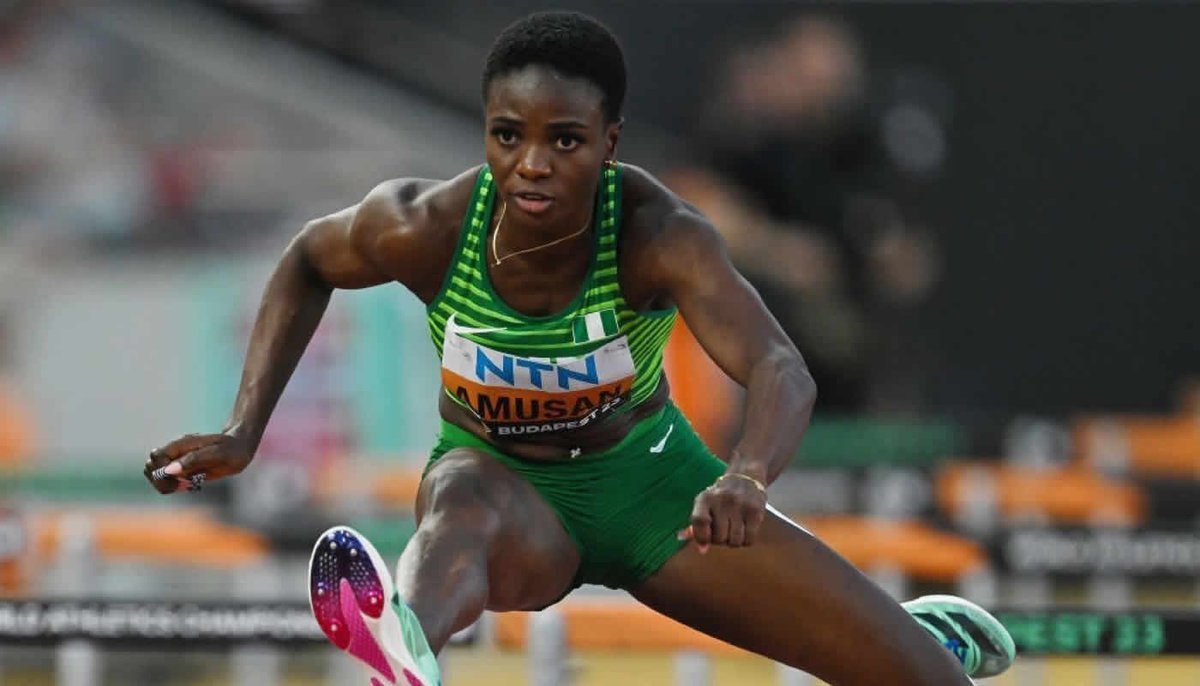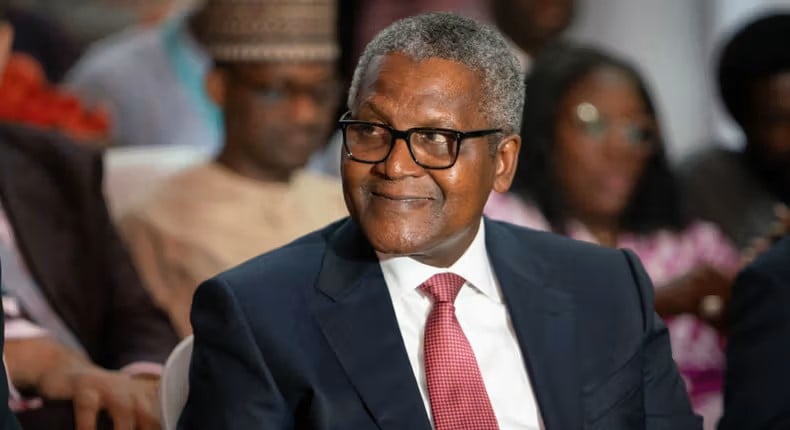
Athletics Federation of Nigeria Fires Back at Tobi Amusan Amid Kit Controversy
The Athletics Federation of Nigeria (AFN) has found itself at the center of a storm after Nigeria’s star sprinter, Tobi Amusan, openly criticized the lack of adequate support and preparation from the federation ahead of her international engagements. In a strongly worded response that has already fueled fresh debate among
The Athletics Federation of Nigeria (AFN) has found itself at the center of a storm after Nigeria’s star sprinter, Tobi Amusan, openly criticized the lack of adequate support and preparation from the federation ahead of her international engagements. In a strongly worded response that has already fueled fresh debate among Nigerians, the federation claimed Amusan’s grievances were exaggerated and misrepresented, insisting that the track icon had been given preferential treatment, including a business class flight upgrade, while other athletes flew economy.
“Other athletes flew economy. She flew specially in business class. Her flight was upgraded at her request. I don’t know who pushed Tobi Amusan to do what she did… There is nothing wrong with those kits. The only thing we didn’t give them is a traveling bag. We told them their full package would come the next day. Yet, she showed the world only one pack,” the AFN declared in its statement, taking a defensive yet combative stance against the international champion.
The controversy first erupted after Amusan took to social media to express dissatisfaction with the conditions under which Nigerian athletes were being prepared and sent out for competition. She shared images of kits that appeared incomplete, a move that immediately sparked widespread criticism of Nigeria’s sporting authorities, who for years have been accused of neglect, disorganization, and mismanagement of elite athletes. Her post was widely interpreted as yet another damning example of how the country has failed to properly value and invest in its athletes, despite their remarkable achievements on the global stage.
The AFN’s response, however, paints a different picture. According to the federation, Amusan’s decision to publicize her kit package without context was a calculated attempt to embarrass Nigerian sports administrators. They argued that what she displayed was only part of a larger kit delivery, and that the full set was scheduled to arrive later. The federation emphasized that all athletes were informed of this arrangement, but Amusan allegedly chose to highlight the incomplete delivery in a way that cast the AFN in a negative light.
What has further fueled public debate is the federation’s revelation that Amusan received treatment that most of her fellow athletes could only dream of. By granting her a business class upgrade, the AFN believed they were honoring her status as Nigeria’s world-class hurdler and reigning 100m hurdles world record holder. Yet, the narrative of Amusan traveling in comfort while others endured economy class journeys sits uneasily with her complaints of neglect. For the AFN, this appears to be proof that she was not only recognized but prioritized.
Still, critics of the federation argue that the issue goes far beyond a single athlete’s travel arrangements. The deeper question, they insist, is why Nigerian athletes, many of whom bring glory to the nation, must regularly endure shoddy logistics, incomplete kits, late payments, or lack of essential support ahead of global competitions. Amusan’s frustration, whether overstated or not, has reignited anger among sports lovers who believe the AFN and the Ministry of Sports have for years failed to create a sustainable system where Nigerian athletes feel respected, valued, and prepared.
The timing of the federation’s statement has also raised eyebrows. Instead of addressing the underlying concerns about sports administration in the country, the AFN’s defensive tone has been interpreted as an attempt to silence criticism by shifting focus onto Amusan’s supposed privileges. Nigerians online have questioned why the federation’s first instinct was not to reassure the public about their commitment to athletes’ welfare, but to highlight one athlete’s upgraded flight and insinuate selfishness.
Tobi Amusan’s reputation as a fiercely independent athlete also plays into the unfolding drama. Having once battled suspension over whereabouts failures in anti-doping tests before being cleared, and after years of pushing through injury and underfunding to become a world record holder, Amusan has been vocal about the lack of structural support she receives from home. Her critics accuse her of being too outspoken and confrontational, while her supporters applaud her for daring to hold Nigerian officials accountable in a system where silence is often rewarded with continued neglect.
For many, the AFN’s comments only confirm the widening gulf between Nigerian athletes and the administrators who are meant to support them. By pointing out that Amusan received a business class flight, the federation seems to believe it has made a compelling case that it values her. But observers argue that such symbolic gestures cannot replace consistent, professional support structures. Providing one athlete with upgraded travel while others languish in economy, they argue, is not a sustainable approach to sports development.
The federation’s remarks about the kits also risk backfiring. Nigerians are well aware of the long history of administrative chaos that has seen athletes wear mismatched kits, receive uniforms at the last minute, or even compete without official sponsorship gear in past competitions. The idea that Amusan’s complaints are simply exaggerated may not resonate with a public that has witnessed years of embarrassing episodes in Nigerian sports. For every Amusan who dares to speak out, there are dozens of athletes who quietly endure poor treatment and lack of preparation.
Meanwhile, Amusan has not publicly responded to the AFN’s latest statement, but her initial post continues to trend across social media, with fans divided between those who believe she was right to call out the federation and those who now feel her stance has been undermined by revelations of preferential treatment.
This public dispute reflects a deeper cultural tension within Nigerian sports: the struggle between an older administrative order that prioritizes hierarchy, control, and face-saving narratives, and a younger generation of globally recognized athletes who are increasingly unwilling to remain silent about inefficiencies. Amusan, with her global platform and international recognition, embodies this clash.
As the debate rages on, one thing remains clear: Nigerian athletics is once again in the headlines for controversy rather than achievement. At a time when the country desperately needs to project competence and pride through its athletes, the war of words between the AFN and one of its brightest stars threatens to overshadow the very competitions that are supposed to unite the nation.
Whether Amusan exaggerated or the AFN failed, the larger tragedy lies in the fact that such disputes continue to recur. Instead of focusing on nurturing talent, creating world-class facilities, and ensuring smooth preparation, Nigerian sports remains stuck in a cycle of blame games, last-minute fixes, and public embarrassments. Until this culture changes, the nation may continue to rely on the extraordinary resilience of individual athletes like Tobi Amusan to shine despite, not because of, the system that governs them.
For now, Nigerians wait to see whether the AFN will take this moment as a wake-up call to reform or whether the federation will remain locked in its defensive posture. In either case, the controversy has once again put a spotlight on the struggles of Nigerian athletes and the urgent need for genuine accountability in sports administration.
Share this post
Related Posts

Dangote Group Launches $2.5 Billion Urea Fertilizer Plant in Ethiopia Amid Mixed Nigerian Reactions
In a move reshaping Africa’s industrial map, Dangote Group has officially broken ground on a...

Yobe’s Shining Star: 17-Year-Old Nigerian Girl Beats the World to Win Global English Championship
In what can only be described as a triumphant moment not just for Yobe State...

Celebrity Designer Veekee James Sparks Outrage with Marital Advice at Bridal Shower
\"Don\'t deny your husband sex. If you are too tired, just lie down and open...